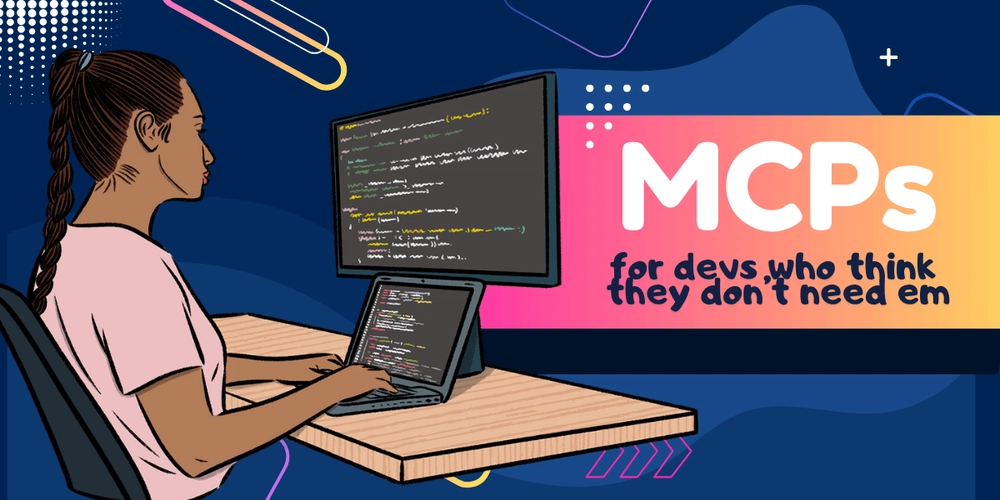You can’t code your way out of burnout — but you can reprogram your brain for balance.
If you work in tech, you’ve probably experienced that creeping sense of mental exhaustion. Long hours, context switching, and information overload can push your nervous system to its limits.
Here’s some good news — research from the National Institute of Mental Health (NIMH) shows that simple, daily habits—like sleep, exercise, and mindfulness—can have a measurable impact on anxiety, focus, and emotional resilience.
And no, this isn’t “wellness fluff.” These are evidence-based strategies that improve your mental performance, productivity, and long-term well-being.
⚙️ Why Developers (and Knowledge Workers) Need Mental Maintenance
Your brain is the ultimate processor — it consumes about 20% of your body’s energy. Every decision, meeting, and bug fix pulls from your neural “battery.”
When you skip sleep, eat poorly, or sit for hours, you’re not just tired — you’re changing how your brain functions.
Here’s what NIMH and neuroscience tell us about the biological benefits of self-care:
Exercise increases dopamine, serotonin, and endorphins (the same chemicals targeted by antidepressants).
Mindfulness activates your parasympathetic nervous system — your body’s “calm mode.”
Sleep repairs emotional regulation circuits in the brain.
Nutrition fuels neurotransmitter production and blood sugar balance.
Think of these as your daily patches for mental performance.
🏃♂️ 1. Move Daily — Even Just 30 Minutes
Sitting is the new smoking — and if you spend your day coding, that’s not great news.
According to NIMH, 30 minutes of walking or light exercise can noticeably boost mood and focus.
Why it matters:
Increases blood flow to your brain (improving creativity + focus)
Reduces cortisol, the stress hormone
Promotes hippocampal growth (helps regulate memory + emotion)
Try this:
Walk while taking calls
Use a standing desk for part of the day
End your day with a short stretch session
💡 Pro tip: The best workout is the one you’ll actually do. Consistency beats intensity.
🥗 2. Eat Like Your Brain Depends on It (Because It Does)
Your gut produces 90% of your serotonin, the neurotransmitter responsible for mood regulation.
NIMH’s advice: Eat balanced, regular meals and stay hydrated.
Quick upgrades:
Include protein with every meal (eggs, fish, legumes, tofu)
Avoid skipping meals — it triggers irritability and brain fog
Drink water equal to half your body weight in ounces per day
Limit caffeine after lunch to protect sleep
At NVelUp, we often see mood improvements within weeks when clients pair therapy with mindful eating.
😴 3. Sleep: The Original Debugging Tool
If your brain were code, sleep is your nightly system reset.
NIMH recommends a consistent sleep routine — not just for energy, but for emotional stability and memory.
Tips to optimize sleep:
Keep the same bedtime + wake time daily
Avoid screens for 1 hour before bed (blue light blocks melatonin)
Cool, dark, quiet room = better REM sleep
Avoid caffeine after 2 PM
If you’ve tried everything and still can’t sleep, explore Cognitive Behavioral Therapy for Insomnia (CBT-I) — a clinically proven approach to retrain your brain for rest.
🧘 4. Mindfulness Isn’t Fluff — It’s Brain Training
You don’t need to meditate for hours. You just need to pause — regularly.
Techniques backed by NIMH:
4-7-8 Breathing: inhale 4s → hold 7s → exhale 8s
Progressive muscle relaxation: release tension systematically
Mindful transitions: take 3 conscious breaths between meetings
Think of mindfulness as mental context-switching cleanup — clearing the cache before loading the next task.
🚧 5. Boundaries and Micro-Goals
Burnout often happens not because we do too little, but because we do too much of what doesn’t align with our values.
NIMH’s advice: Prioritize what matters, and say “no” when needed.
Try the Must–Should–Could system:
Musts: essential (work, care duties)
Shoulds: flexible (house chores)
Coulds: optional (extra commitments)
End your day with small wins, not unfinished tasks.
Example: “I closed two Jira tickets and went for a walk — that’s progress.”
💬 6. Connection Is Medicine
Even introverted developers need human connection to regulate mood and reduce anxiety.
Text a friend, even briefly
Join a local tech meetup or online community
Volunteer for something you care about
Isolation amplifies stress. Connection neutralizes it.
🧩 When Self-Care Isn’t Enough
If low mood, anxiety, or fatigue last more than two weeks, self-care isn’t a failure — it’s a signal.
That’s when structured mental health support helps.
At NVelUp, we integrate:
Therapy & CBT for anxiety and depression
Holistic coaching for fitness, nutrition, and habits
Medication management when clinically appropriate
Because wellness isn’t one-size-fits-all — it’s a full-stack system.
🧭 TL;DR — Build a Sustainable Mental Health Routine
Morning: Drink water + 10-minute walk
Afternoon: Balanced lunch + 2-minute breathing reset
Evening: Screen-free hour + gratitude journaling
Measure progress by how you feel, not how perfect your habits are.
Over time, small wins compound into sustainable balance.
💡 Discussion
Which of these habits have helped you handle stress or burnout?
Drop your thoughts below — your routine might help another developer out. 👇
🔗 References
Original Article on NVelUp
NIMH: Caring for Your Mental Health



